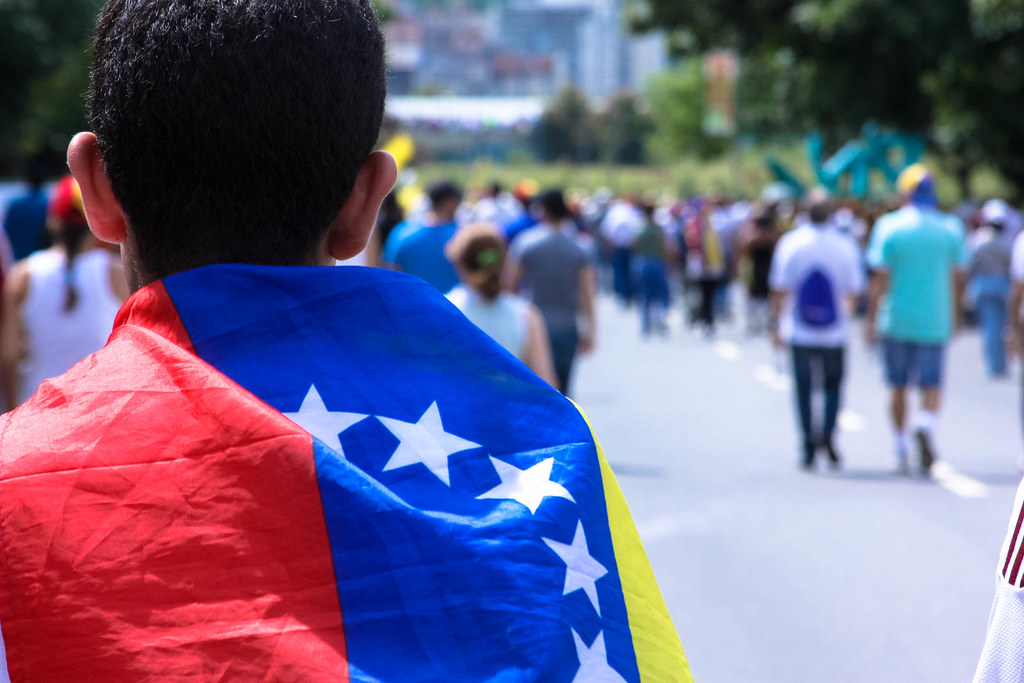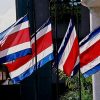The question as to what is to be done with Venezuela has been formulated time and again in recent years by practically all of the Latin American Foreign Ministries, and by the most diverse range of think tanks, journalists and politicians, along with a heterogenous group of others. In general, the question is typically left unanswered due to the complexity of the crisis and the atypical behaviour of most of the actors involved.
And if the clamour for an answer was incessant during 2017, it will be even more intense in 2018 as the economic situation worsens (hyperinflation, shortages and growing debt), as the humanitarian drama deteriorates by the minute, and as the uncertainty generated by the lack of coherent explanations as to how to get out of this painful situation continues. Everything seems to confirm fears that the current junction could give way to even more grave consequences for the Venezuelan people, the central protagonist of the tragedy underway.
“Only the government of Raul Castro has the sufficient capacity and influence to attempt to reach a solution to the Venezuelan conflict”
The magnitude of the crisis and the government’s resistance to progress on any negotiated agreement has led to the failure of practically all proposed solutions. Neither election results nor street protests have proved capable of contributing to any progress, despite the widespread rejection of the Chavista leaders, beginning with Nicolas Maduro himself, as the public opinion polls continually reveal.
The situation has been aggravated by the fact that the opposition’s scope for manoeuvre is very narrow, given the constant reformulation of the rules of the game undertaken by Maduro and the regime’s repressive economic and political actions. To this must be added the weakness, disunity and lack of clear and coherent proposals from the opposition, which, instead helping matters, makes them worse.
Furthermore, the international community faces strict limitations when it comes to mediating the crisis. Positions in favour of dialogue and a negotiated solution are typically rejected by the Venezuelan government, unless it decides to take advantage of the recourse to negotiation to buy time or make compromises that can defuse particularly difficult moments. The support of Cuba, Russia and China has also allowed the Bolivarian regime to protect its flanks.
In the context of the current crisis affecting the country, only the government of Raul Castro has the sufficient capacity and influence to attempt to reach a solution to the Venezuelan conflict. But it is one thing to have the capacity; a very different thing is the political will to carry this out. However, in the face of economic difficulties on the island itself, a change in government in Venezuela would be catastrophic for the Cuban government, given the level of aid it receives daily from its Caribbean neighbour in the form of petroleum.
If, on top of the question of what to do with Venezuela, one adds that of what can be expected from the international community, especially within the Latin American neighbourhood, then the possible responses multiply in number, although this in no way implies that anyone has offered viable solutions of any type, or recommendations that could be taken on by the governments involved.
The positions of the Lima Group, including the condemnation of the lamentable human rights situation in Venezuela and the participation of some Latin American Foreign Ministries in the negotiations that were attempted in Santo Domingo, are important steps forwards. However, in the face of regional fragmentation it is practically impossible to come to consensual solutions. Then there is also the influence that certain principles –like that of territorial sovereignty and non-interference in domestic affairs– exert within regional public opinion.
The formulation of new proposals
At the beginning of 2018 two new proposals offered some innovation on the recommendations presented so far that might be able to pull the country out of the vicious circle in which it has been trapped. One of them, quite polemical, was formulated by Ricardo Hausmann, former Minister in Venezuela (1992-93) and professor of economics at Harvard. The other comes from Emilio Cárdenas, the former Argentine Ambassador to the UN. Both propose that the international community, especially Latin America, adopt a more active role in resolving the Venezuelan crisis.
Hausmann advocates that the legally elected National Assembly, controlled by the opposition, depose the government of Nicolas Maduro using its constitutional prerogatives. An executive capable of petitioning the international community (Latin America, the US and the EU) for military assistance in resolving the humanitarian drama unfolding in the country could be temporarily elected. The crisis is such that, in Maduro’s own words, ‘(the situation) is beginning to move on, inexorably, from being catastrophic to becoming unimaginable’.
For his part, Cárdenas points out that in the face of the growing threat to Latin American peace and security from Maduro’s foreign policy, the region itself should begin to adopt concrete measures that go beyond mere rhetoric. Cárdenas reminds us that the Venezuelan government declared the diplomatic representatives of Brazil and Canada persona non-grata and that Maduro focused a good part of his insults and threats on the Argentine President, Mauricio Macri, whom he called a ‘thief’, a ‘coward’, a ‘bandit’ and even a ‘drainpipe rat’, and the ‘godfather of the fascist Venezuelan right’.
Cárdenas has proposed a ‘joint recall for consultations’ of all the Latin American ambassadors accredited to Caracas, as a form of regional protest against what can be qualified as inadmissible conduct. He also proposes, as a more serious measure, to leave all Latin American diplomatic missions in Venezuela in the hands of Consuls. His proposal has not yet been the subject of many commentaries, but neither has it provoked systematic rejections.
It could not be any other way –given the implications and everything that is at stake, including the very survival of the Chavista project– that such issues as a potential new US military intervention in Latin America, the possible cost in human lives and material damage of such an operation, the role of regional governments in this regard –and the intense reactions of all kinds that such possibilities raise– have generated a diverse range of opinion along with bitter debates.
The responsibility to protect and responsibility while protecting
Implicit in both these proposed contributions to the solution of the Venezuelan crisis is the ‘right to protect’: the capacity of the international community to intervene in the face of humanitarian crises. By the end of the 20th century a debate was underway over the limits of the use of force and of multilateral interventions in situations of humanitarian crisis or acute instability. From that discussion emerged the idea of the ‘responsibility to protect’ (R2P), championed by Kofi Annan when he was UN Secretary General. However, in the face of what appeared to be a general consensus, given the complications stemming from the UN intervention in Libya, the Brazilian President, Dilma Rousseff, in an address to the UN General Assembly, in September 2011, introduced a subtle nuance differentiating the right to protect from the rights of those protected.
“What is at play here is the contradiction between respect for the principles of sovereignty and non-intervention and the need to protect societies and populations threatened by systematic human rights violations
With respect to the former, Rousseff clarified that, despite supporting UN participation in the prevention of conflicts, a warning was in order with respect to the costs of military interventions which often, far for resolving conflicts, have made them worse, and with direct consequences for the civilian populations involved. The Ambassador to the UN, Maria Luiza Viotti, summed up the Brazilian position a year later, saying: ‘The use of force always carries the risk of innocent victims, and tends to spread violence and instability. The fact that they stem from action intended to protect civilians does not make the collateral damage or any unintended destabilization any less tragic’.
Many voices have been raised against this Brazilian nuance, which seemed to question the notion of intervening in internal affairs, and of the use of force to resolve humanitarian crises. Brazil was placing a clear emphasis on conflict prevention, although the risk is that this focus on the principle of non-invention in internal affairs and in defence of national sovereignty could lead to inaction. As a Danish representative argued in a debate at the UN in February 2012: ‘The risk of inaction in the face of massive atrocities is great, possibly larger that of doing too much’.
What is at play here, then and now, is the contradiction between respect for the principles of sovereignty and non-intervention –part of Latin America’s diplomatic and political DNA– and the need to protect societies and populations threatened by grave, massive and systematic human rights violations. At stake also is the role of international humanitarian law.
These are some of the critiques which have responded more or less openly to Hausmann’s article. One of the dilemmas his proposal reflects is that of determining the lesser of two evils: what will cause more harm to the Venezuela people –a military intervention or the continuation of the status quo?–. At the same time, one issue ignored by Hausmann is how the new government, theoretically to be appointed by the National Assembly, could consolidate its authority in a completely hostile context while successfully convoking international assistance.
Although Hausmann spoke of ‘military assistance’, this was interpreted as ‘military intervention’. The responses of Xabier Coscojuela, on the one hand, and of Sean Berges and Fabricio Chagas Basos, on the other, point in this direction. Even the latter two called a supposed invasion of Venezuela a ‘terrible idea’. Such critiques underlined the difficulties of mounting a successful military operation in the face of the fire power of the Bolivarian National Armed Forces (BNAF). They also have concentrated on arguing why a civil war would not only destabilise Venezuela but also the whole of Latin America.
“Negotiate the calling of new elections that are fair and have sufficient guarantees would be the only way forwards for resolving the crisis and commencing with national reconstruction”
At the same time, these critics have also questioned the Latin American regional capacity to intervene, arguing that only the US has the operational and logistical capacity needed to guarantee a change of government and to re-establish social order in the wake of such a military intervention. US participation (on top of the revulsion factor provoked by Trump) would generate widespread discontent and the opposition of most of the region’s governments, all of which jealously guard the principle of non-intervention in internal affairs and the defence of national sovereignty. It was also emphasised that such an intervention would rekindle nationalist sentiment in Venezuela, something which (self-servingly agitated by the government) would reinforce Chavismo.
Many question whether the current juncture still offers any scope at all for a political solution. Some believe that it is still possible, whether in Santo Domingo or elsewhere, to negotiate the calling of new elections that are fair and have sufficient guarantees. This would be the only way forwards for resolving the crisis and commencing with national reconstruction.
In rebuttal, Hausmann underlines the failure of all previous options proposed by the opposition to overcome the current state of affairs. Given the absolutely catastrophic situation in the country, and the horrendous magnitude of the humanitarian crisis which accompanies the crisis, Hausmann reminds us that inaction will only increase exponentially the number of victims and the level of suffering of the Venezuelan people. Therefore, there is a need to intervene.
A final consideration
At present, the question as to what to do in or with Venezuela has no clear answer. Clovis Rossi, in response to the debate raised by Hausmann’s proposal said that ‘all of the other routes for resolving the Venezuelan crisis have failed. The electoral route failed, the protest route failed and now dialogue is failing. Therefore, it is necessary to think the unthinkable’. Still, where are the limits to such unthinkable actions and who among the principal actors is willing to accept them, beginning with the government and the opposition, and including the international community?
Hausmann could be right that the only solution is military, although this at least falls within the category of the thinkable. In any event, what should be the price paid by Venezuelan society in the case of a foreign armed response? In the face of the current determination of the government of Nicolas Maduro to resist at all costs, a rapid intervention of foreign forces with few victims is practically impossible. A civil war –which would immediately be presented by the Chavista regime as the heroic popular resistance in the face of a new imperialist aggression– would leave behind deep wounds that would take years to heal. Appropriating the role of the victim, the myth of Hugo Chávez would be strengthened and Chavismo as a political movement would maintain aspirations to return to power for generations. In this way, the future of Venezuela would be condemned for the coming decades.



